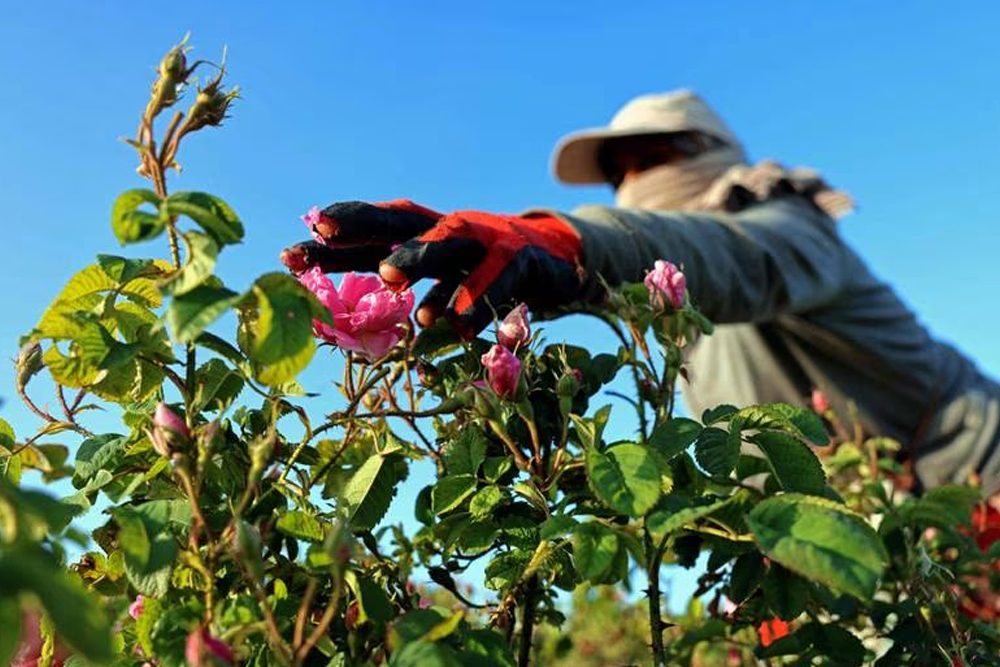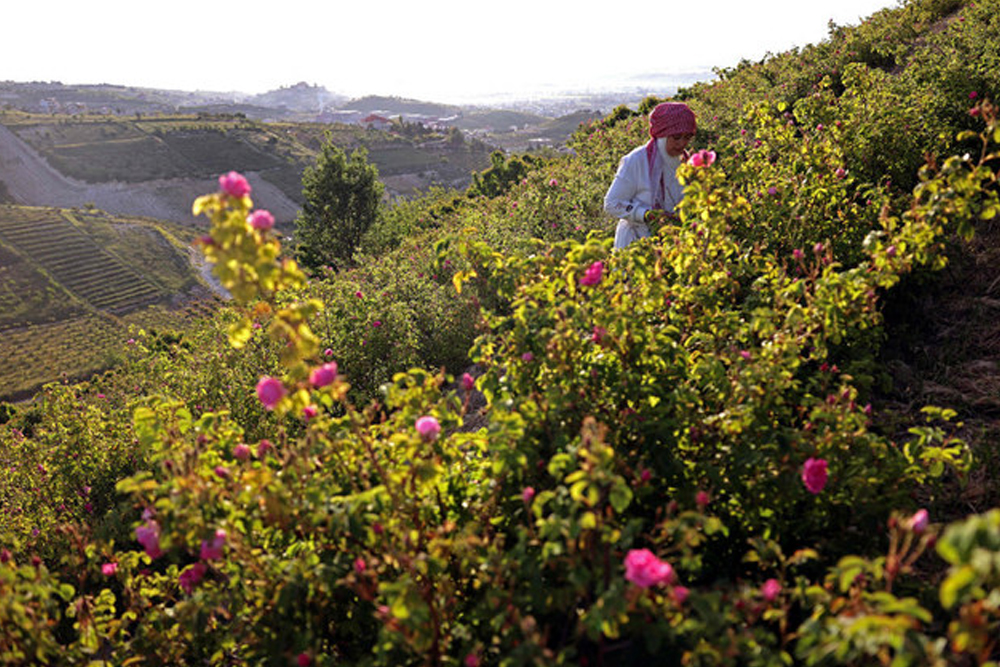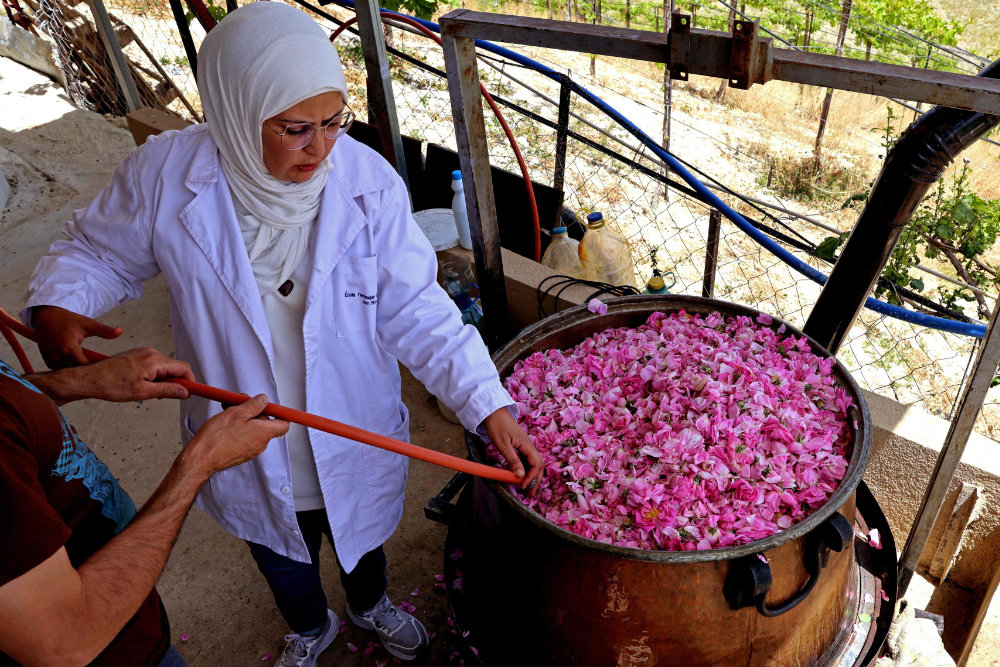
Nestled on a gentle slope with a view of Lebanon's Bekaa Valley, the villagers of Qsarnaba diligently gather Damask roses, renowned for their fragrant essential oils and their applications in confections and beauty products.
Leila Al-Dirani, a 64-year-old villager, finds solace and optimism in the rose harvest. Wearing a bag around her waist and bearing thorn wounds on her hands, she carefully gathers the aromatic buds, permeating the air with their intoxicating fragrance.

The renowned Damask rose, named after the ancient city of Damascus located nearby in Syria, yields an oil cherished by perfumers. Experts attest to its therapeutic properties, combating infections and inducing relaxation. Rose water, derived from these roses, is a popular Middle Eastern beverage, used in confections like Turkish delight, to scent mosques, and even believed to bring luck in weddings.

After gathering the roses at dawn, the laborers in Qsarnaba deliver their aromatic bundles to a local storage facility, receiving payment according to their yield. Within the pink-petal-covered facility, Zahraa Sayed Ahmed purchases the raw materials for her rose water, syrup, tea, and jam production. At the age of 37, Zahraa established a small workshop at her home, utilizing a traditional metal still passed down from her grandfather. With one kilogram of rose petals, she can produce up to half a liter of rose water. She personally bottles and labels her modest output, which is sold locally in limited quantities.

Zahraa highlights the cultural importance of producing rose water. While the rose season lasts only a few weeks, it is a bustling period for the village's inhabitants. This year, however, due to the economic crisis plaguing Lebanon since late 2019, Qsarnaba's rose harvest has suffered a severe decline in value. Hassan Al-Dirani, a 25-year-old who assists his mother, Leila, in picking roses, reveals that they were unable to hire additional workers this year due to the low production and financial constraints.
Daher Al-Dirani, a respected figure in Qsarnaba's influential Al-Dirani family, laments the economic crisis's impact on the value of the rose harvest, which has plummeted by approximately 80%. Nevertheless, he acknowledges that the cultivation of roses provides a means for the villagers to sustain themselves.

The ancient Damask rose, originally exported from Syria to Europe during the Crusades, is now cultivated in various countries, including France, Morocco, Iran, and Turkey. Zahraa, though, proudly asserts that Qsarnaba leads all Lebanese villages in rose cultivation, contributing to over half of the country's rose water output. The village has become synonymous with roses, its captivating scent wafting through the air, a testament to its status as the "village of roses."

















